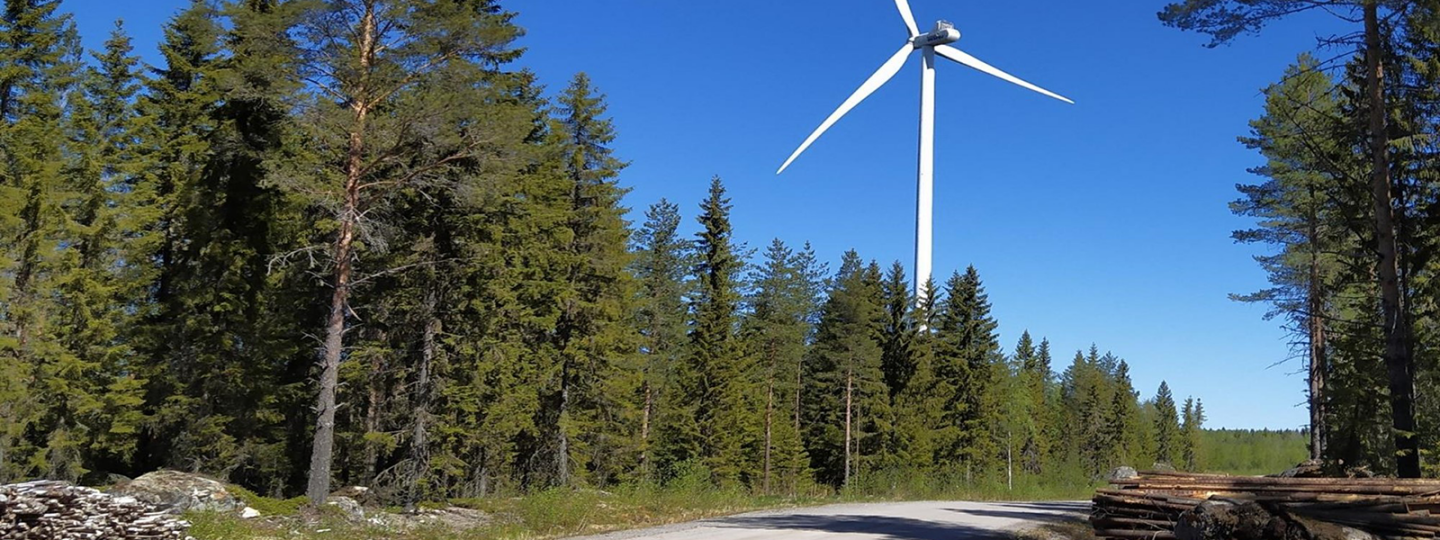After monitoring bat activity for two summers, doctoral researcher Simon P. Gaultier found that bats avoid wind turbines and artificial lights in woodlands. The thesis also highlights the need for better consideration of bats in wind power projects in the whole European boreal region.
“Finnish bats are not spared by wind power and artificial lighting, but until now these issues have been mostly disregarded by authorities or researchers. This led me to investigate the effects of these activities to bats,” says doctoral researcher Simon Gaultier from the Department of Biology at the University of Turku.
Gaultier started by reviewing the scientific literature on wind power and bats for Europe, with a special focus on the countries around the Baltic Sea. This area is of great interest because bats migrate through it every autumn, while the windy conditions there led to the construction of many wind turbines.
“The results of this review were quite clear: we do not know much about the impacts of wind power in this region, Finland included. Research on the topic is very scarce, while national legislation does not ask for much effort on bat conservation during the planning or operating of wind turbines. And wind power developers rarely go beyond what is legally required to do,” says Gaultier.
Based on these first results, Simon Gaultier chose to focus on the avoidance effect, an understudied impact of wind power, where bats avoid wind turbines or their surroundings. This phenomenon was never investigated in Finland nor woodlands.
“In Finland, wind turbines are mostly built in forests because this environment is dominating the country, and scarcely populated. But it does not mean it is empty! Many bats can be found in the Finnish forests, especially in summer when they come to escape the lack of darkness of the boreal night. Unfortunately, they are not doing well when wind turbines are also present. After monitoring them during four months, I discovered that bats are more present away from wind turbines than near them. It means that bats avoid the surroundings of turbines and cannot use them for their commuting or foraging. Sadly, we are not sure why this happens. It could be because of the changes in the forest caused by the construction of wind turbines, with more open areas, something that bats do not like too much.”

In his research Gaultier also probed into another overlooked threat on bats: light pollution. Most bats will seek shelter in the woodlands during the summer, so the effects of light pollution were also studied in the forest area.
During the summer Gaultier set up flood lights in a forest area, as the white light emitted by these lights resembles much of modern outdoor lighting. Gaultier then compared how the bat presence in the artificially lit area differs from the naturally dark forest area.

“Some bats avoid all light at all times, but some species may forage around certain types of street lights, which produce ultraviolet light and attract insects. The results of the comparison showed that one group of species, Myotis bats, avoided artificially lit places, because light means a higher risk of predation for them. Also, another species, the Northern bat, that can be seen foraging around street lights in the spring, was avoiding our lights because there was no insect around them. However, a lot of the outdoor lighting used in modern environments are similar to this type of light, which does not attract insects and bats, Gaultier explains.”
While these results are enough to show an impact of wind power and artificial lighting on Finnish bats, Simon Gaultier calls for more research in the country, but also asks authorities for help.
“Authorities need to lead the way and show that wind power development must consider its impacts on bats and biodiversity more carefully. More regulation is needed. Regarding light pollution, it is not only harmful for bats, but for many species, including humans. Rethinking our use of artificial lighting would be beneficial for biodiversity, human health, but also our wallets. Solutions are already there, they’re simple and they work. Let’s use them.”
***
MSc Simon Gaultier defends his dissertation in Biology entitled “Impacts of human activities on bats in the boreal forest” at the University of Turku on 9 June 2023 at 12.00pm (University of Turku, Natura, lecture hall X, Turku).
The audience can participate in the defence also through remote connection
Opponent: Professor Christian Voigt (Leibniz Institute for Zoo and Wildlife Research)
Custos: Professor Jon Brommer, University of Turku
Digital copy of the thesis at UTUPub




